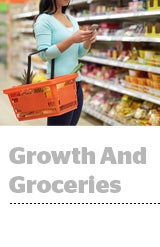 Unilever CMO Keith Weed gave influencer marketing a black eye at Cannes this year with a call for brand marketers to demand more transparency and accountability in their dealings with social trendsetters.
Unilever CMO Keith Weed gave influencer marketing a black eye at Cannes this year with a call for brand marketers to demand more transparency and accountability in their dealings with social trendsetters.
It’s about time the industry took a more critical view, said Ahalogy’s CEO and co-founder, Bob Gilbreath. Ahalogy is an influencer marketing ad tech company focused on consumer store brands that was acquired earlier this month by digital marketing and coupon vendor Quotient Technology for $50 million.
“The reason this is a story now is because of the need to clean up influencer marketing, but also because its importance is growing for CPGs,” Gilbreath said.
For their part, brands have to push influencer marketing to evolve away from abstract value and toward concrete ROI. This means shifting from an earned media mindset to a paid media model, Gilbreath said.
“Because it’s so hard to get the actual results,” he said, it makes the most sense for Ahalogy and other influencer-focused vendors to approach earned media – the nonpaid value clients get in attention and coverage – as more of “an added bonus.”
But Unilever and other brands often pay influencers based on social or earned media metrics, such as follower count or shares, and that exposes them to fraud.
“For the sake of a few bad apples in the barrel, I believe there is risk in the area of influencers,” Weed said earlier this week.
Ahalogy started working a year ago with Moat for third-party verification, demanding its roughly 9,000 influencers drop Moat tags on their sites – most have standalone blogs, as well as social accounts – to weed out nonhuman traffic. Influential, another influencer marketing company, announced a similar partnership with Moat last month.
Some influencers buy followers and try to rig campaigns, but even those acting with the best of faith end up with some fake engagement. One way to fight against it is to treat campaigns as paid. When the KPI is clear, like driving human traffic from social to a customer site or to a store with a coupon, brands can tap influencers without ending up in social media quicksand.
Paid media also brings an added level of transparency to influencer campaigns and much finer targeting controls.
A CPG brand Ahalogy works with, for example, may want to drive diaper sales from a specific retail chain like Safeway, but it’s impossible to break down an influencer’s follower and audience count based on the number of parents with small children who live within a five-mile radius of an eligible store.
“With paid media, we can go get that data and apply it in the buy,” Gilbreath said.
But the large CPGs have a steep learning curve and a lot of competition.
Startup consumer product brands, such as Dollar Shave Club and Beyond Meat, which produces vegan alternatives to meat products, have heavily invested in influencers and shown the viability of driving sales from social that historically would have involved a trip to a supermarket or pharmacy.
As traditional CPG brands figure out how – or at least attempt – to recapture those consumers, they’re going to start pushing for transparency and defensible results.
“And that’s going to mean more attention and pressure on influencer companies,” Gilbreath said.












